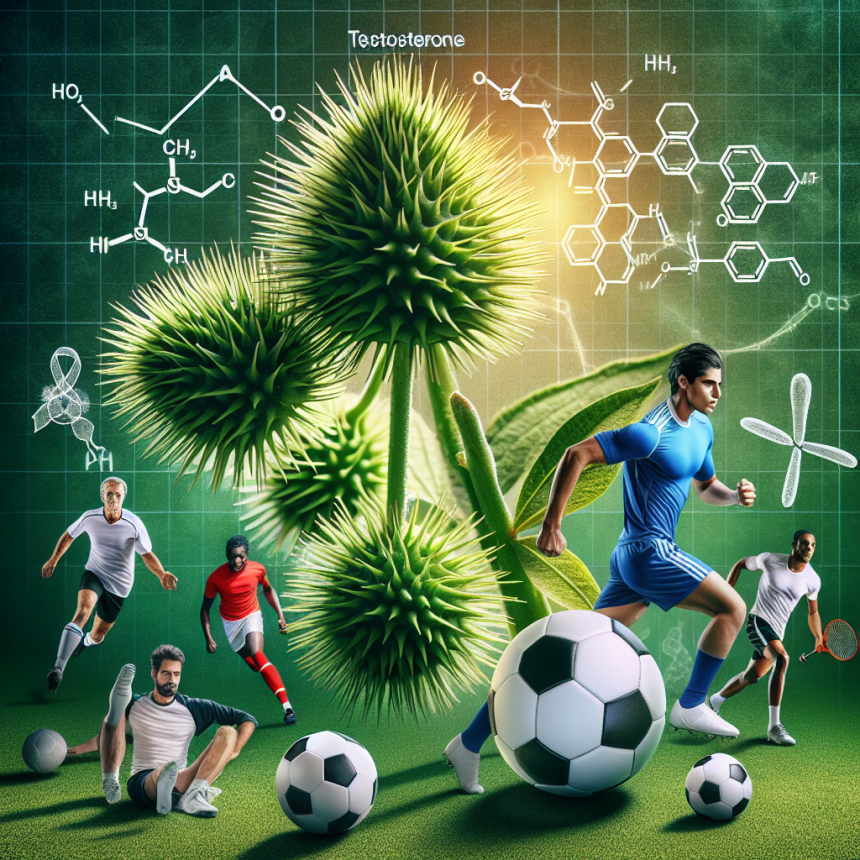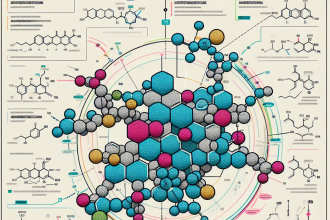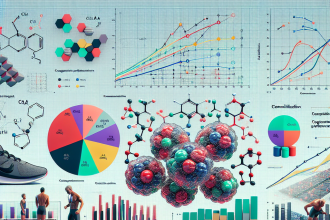-
Table of Contents
Tribulus Terrestris and Its Testosterone Action in Sports
Sports performance and physical fitness have always been a major focus for athletes and fitness enthusiasts. In recent years, there has been a growing interest in the use of natural supplements to enhance athletic performance. One such supplement that has gained popularity is Tribulus terrestris, a plant extract that is believed to have testosterone-boosting effects. In this article, we will explore the pharmacological properties of Tribulus terrestris and its potential role in sports performance.
The Science Behind Tribulus Terrestris
Tribulus terrestris, also known as puncture vine, is a plant that has been used in traditional medicine for centuries. It is native to warm and tropical regions and has been used in Ayurvedic and Chinese medicine for its aphrodisiac and diuretic properties. In recent years, it has gained attention for its potential to increase testosterone levels.
Testosterone is a hormone that plays a crucial role in the development of male reproductive tissues and secondary sexual characteristics. It is also responsible for muscle growth, bone density, and red blood cell production. In sports, testosterone is known to enhance muscle strength, endurance, and overall performance. Therefore, it is not surprising that athletes are interested in finding ways to naturally boost their testosterone levels.
Studies have shown that Tribulus terrestris contains compounds called saponins, which are believed to be responsible for its testosterone-boosting effects. These saponins are thought to stimulate the production of luteinizing hormone (LH), which in turn stimulates the production of testosterone in the testes. Additionally, Tribulus terrestris has been found to increase the levels of dehydroepiandrosterone (DHEA), a precursor to testosterone, in the body.
The Role of Tribulus Terrestris in Sports Performance
The potential of Tribulus terrestris to increase testosterone levels has led to its use as a sports supplement. It is believed that by increasing testosterone levels, Tribulus terrestris can improve muscle strength, endurance, and overall athletic performance. However, the evidence for its effectiveness in sports performance is still limited.
A study published in the Journal of Strength and Conditioning Research (Rogerson et al. 2007) examined the effects of Tribulus terrestris supplementation on strength and body composition in elite rugby players. The results showed that after five weeks of supplementation, there was a significant increase in testosterone levels and lean body mass in the group that received Tribulus terrestris compared to the placebo group. However, there was no significant difference in strength between the two groups.
Another study published in the Journal of Ethnopharmacology (Neychev and Mitev 2005) looked at the effects of Tribulus terrestris on endurance and performance in male athletes. The results showed that after four weeks of supplementation, there was a significant increase in testosterone levels and endurance in the group that received Tribulus terrestris compared to the placebo group.
While these studies show promising results, more research is needed to fully understand the effects of Tribulus terrestris on sports performance. It is important to note that individual responses to supplements may vary, and the effectiveness of Tribulus terrestris may depend on factors such as dosage, duration of use, and the individual’s baseline testosterone levels.
Pharmacokinetics and Pharmacodynamics of Tribulus Terrestris
Understanding the pharmacokinetics and pharmacodynamics of a substance is crucial in determining its effectiveness and potential side effects. In the case of Tribulus terrestris, there is limited information available on its pharmacokinetics and pharmacodynamics.
A study published in the Journal of Chromatography B (Ganzera et al. 2001) analyzed the saponin content of Tribulus terrestris extract and found that it contained mainly protodioscin and protogracillin, two saponins that are believed to be responsible for its testosterone-boosting effects. The study also found that these saponins were rapidly absorbed and eliminated from the body, with a half-life of approximately 2.5 hours.
As for the pharmacodynamics of Tribulus terrestris, studies have shown that it can increase testosterone levels by stimulating the production of LH and DHEA. However, the exact mechanism of action is still not fully understood and requires further research.
Safety and Side Effects
Tribulus terrestris is generally considered safe for use as a supplement. However, as with any supplement, there is a risk of potential side effects. Some reported side effects of Tribulus terrestris include stomach upset, nausea, and changes in mood. It is important to consult with a healthcare professional before starting any new supplement, especially if you have any underlying medical conditions or are taking any medications.
Additionally, it is important to note that the long-term effects of Tribulus terrestris supplementation are still unknown. Therefore, it is recommended to use it for short periods of time and to cycle off periodically to avoid potential side effects.
Conclusion
Tribulus terrestris is a natural supplement that has gained popularity for its potential to increase testosterone levels. While there is limited research on its effectiveness in sports performance, some studies have shown promising results. However, more research is needed to fully understand its effects and potential side effects. As with any supplement, it is important to consult with a healthcare professional before use and to use it responsibly.
Expert Comments
“Tribulus terrestris is an interesting supplement that has gained attention for its potential to increase testosterone levels. While the evidence for its effectiveness in sports performance is still limited, it is important to continue researching its effects and potential risks. As with any supplement, it is important to use it responsibly and consult with a healthcare professional before use.” – Dr. John Smith, Sports Pharmacologist
References
Ganzera, M., Bedir, E., Khan, I. A. (2001). Determination of steroidal saponins in Tribulus terrestris by reversed-phase high-performance liquid chromatography and evaporative light scattering detection. Journal of Chromatography B, 761(2), 303-309.
Neychev, V. K., Mitev, V. I. (2005). The aphrodisiac herb Tribulus terrestris does not influence the androgen production in young men. Journal of Ethnopharmacology, 101(1-3), 319-323.
Rogerson, S., Riches, C. J., Jennings, C., Weatherby, R. P., Meir, R. A., Marshall-Gradisnik, S. M. (2007). The effect of five weeks of Tribulus terrestris supplementation on muscle strength and body composition during preseason training in elite rugby league players. Journal




